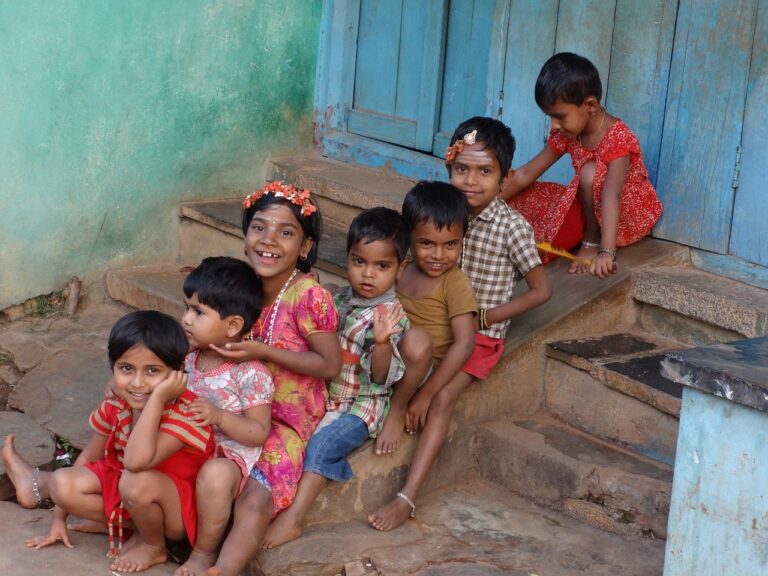Analyzing the Impact of LGBTQ+ Parenting Rights on Elections
all pannel.com, laser247.com, betbook247:Analyzing the Impact of LGBTQ+ Parenting Rights on Elections
In recent years, the topic of LGBTQ+ parenting rights has become a prominent issue in political discussions. As more and more LGBTQ+ individuals choose to start families through adoption, surrogacy, and other means, the legal rights and protections afforded to LGBTQ+ parents have come under scrutiny. These discussions have also spilled over into the realm of elections, with many voters taking a stance on LGBTQ+ parenting rights when deciding who to support at the ballot box.
The impact of LGBTQ+ parenting rights on elections is a complex and multifaceted issue that touches on a wide range of social, political, and ethical considerations. In this article, we will explore the ways in which LGBTQ+ parenting rights may influence elections and how politicians and voters are responding to these issues.
The Rise of LGBTQ+ Parenting Rights
The fight for LGBTQ+ parenting rights has been a long and hard-fought battle. For many years, LGBTQ+ individuals faced discrimination and legal barriers when attempting to start families. However, in recent decades, significant progress has been made in securing legal protections for LGBTQ+ parents and their children.
One of the most significant milestones in this fight was the legalization of same-sex marriage in the United States in 2015. This decision not only granted LGBTQ+ couples the right to marry but also opened the door to a host of other legal rights and protections, including the right to adopt children together and access to assisted reproductive technologies.
Despite these advances, LGBTQ+ parenting rights continue to face challenges in many parts of the country. Some states have passed laws that restrict the rights of LGBTQ+ individuals to adopt or foster children, while others have implemented policies that make it difficult for LGBTQ+ couples to access fertility treatments or legal parentage rights.
The Impact on Elections
The debate over LGBTQ+ parenting rights has spilled over into the political arena, with many politicians and candidates taking strong stances on these issues. For some voters, a candidate’s position on LGBTQ+ parenting rights is a deciding factor when choosing who to support in an election.
For LGBTQ+ individuals and their allies, the fight for parenting rights is a deeply personal issue that often influences their political beliefs and voting habits. These voters are more likely to support candidates who are committed to protecting and expanding LGBTQ+ rights, including the rights of LGBTQ+ parents.
On the other hand, some voters oppose LGBTQ+ parenting rights on religious or moral grounds and may be more inclined to support candidates who take a conservative stance on these issues. These voters may view LGBTQ+ parenting as a threat to traditional family values and may prioritize candidates who promise to roll back LGBTQ+ rights.
Overall, the impact of LGBTQ+ parenting rights on elections is significant and can influence the outcome of races at all levels of government. Candidates who support LGBTQ+ parenting rights may mobilize LGBTQ+ voters and their allies, while opponents of these rights may energize conservative voters who prioritize traditional family values.
The Road Ahead
As LGBTQ+ parenting rights continue to evolve and gain recognition, the impact of these issues on elections is likely to grow. Politicians and candidates will need to carefully consider their positions on LGBTQ+ parenting rights and be prepared to defend them in the face of opposition.
At the same time, voters will need to educate themselves on where candidates stand on LGBTQ+ parenting rights and make their voices heard at the ballot box. By voting for candidates who support LGBTQ+ parenting rights, voters can help shape the future of LGBTQ+ rights and protections in our country.
In conclusion, the impact of LGBTQ+ parenting rights on elections is a complex and evolving issue that touches on a wide range of social, political, and ethical considerations. As LGBTQ+ individuals continue to fight for their rights to start and raise families, these issues will play an increasingly important role in shaping our political landscape.
FAQs
Q: How do LGBTQ+ parenting rights differ from traditional parenting rights?
A: LGBTQ+ parenting rights refer to the legal rights and protections afforded to LGBTQ+ individuals who choose to start families. These rights may include the right to adopt children, access to assisted reproductive technologies, and legal recognition as parents. Traditional parenting rights typically refer to the rights and responsibilities of heterosexual couples who have biological or adopted children.
Q: Are LGBTQ+ parents as capable as heterosexual parents?
A: Yes, research has shown that LGBTQ+ parents are just as capable of providing loving and stable homes for their children as heterosexual parents. Studies have also shown that the sexual orientation of a parent has no bearing on a child’s well-being or development.
Q: Do LGBTQ+ parenting rights vary by state?
A: Yes, LGBTQ+ parenting rights can vary significantly from state to state. Some states have passed laws that explicitly protect the rights of LGBTQ+ parents, while others have implemented policies that restrict these rights. It is important for LGBTQ+ individuals considering parenthood to familiarize themselves with the laws and policies in their state.
Q: How can I support LGBTQ+ parenting rights?
A: You can support LGBTQ+ parenting rights by educating yourself on these issues, supporting LGBTQ+ advocacy organizations, and voting for candidates who prioritize LGBTQ+ rights and protections. By speaking out in support of LGBTQ+ parenting rights, you can help create a more inclusive and equitable society for all families.







